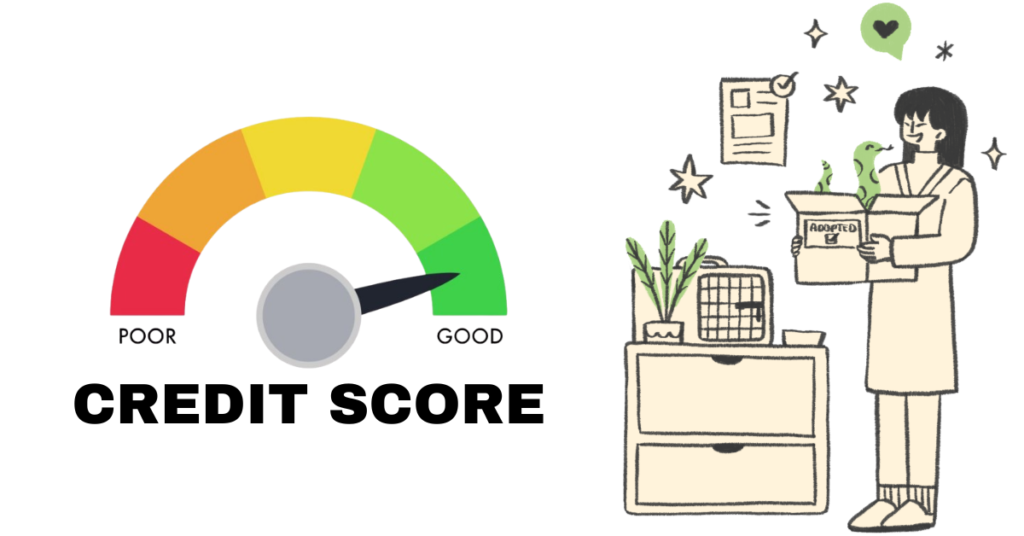Now, when buying an insurance, many consumers may not expect that one’s credit scores matter and are going to matter to the amount of the premium charged. The influence of credit scores on the insurance costs has become an area with more discussion in the past few years. In this article, we shall explore the details of how credit scores affect insurance premiums, the reasons for this practice as well as what the consumers may do to better understand and possibly lower their insurance rates.
Table of Contents
What are Credit Scores ?
Before one explains how credit scores contribute to the determination of the insurance rates, it is imperative to define what a credit score is. A credit score is a number which ranges from 0-999 and depicts an individual’s risk rating based on their past borrowing details. Usually, the figuring range of the scores is between three hundred and eight hundred and fifty; higher scores meaning better repayment commitments. Some of the elements which go into the calculation of a credit score include:
A credit score reflects an individual’s credit-worthiness based on the individual’s payment behavior and history over a specified period. There are several factors used to create credit scores, including the following.
- Payment History (35%): Make sure that you pay all debts impeccably as positive reinforcements are very helpful.
- Credit Utilization (30%): Total of balance(s) as compared to credit limit(s).
- Length of Credit History (15%): The history explains the past borrowing of a client and long creditors history augurs well.
- Types of Credit (10%): One does not fail to mix types of credit accounts, it is beneficial.
- New Credit (10%): However, a higher amount of such activities is also known to lower the credit score.
Lenders often utilize credit ratings to determine the level of risk of extending further loans to an individual; however most of the prospective buyers of this product offer credit report consumers.
What’s the relationship between the above scores and Insurers?
The main arguments presented and often embraced by insurance companies is that individuals who are high score holders have less exposure to filing of claims and requests for repairs within the insured period and are therefore more preferable to be insured. For this reason these people lessees in general tend enjoy lower rates. On the contrary people with average credit score are considered as people who may present a lot of risks and hence the rates on these people
The factors that cause insurers to rely upon credit history for underwriting and assessing a policyholder may differ from state to state and company to company for the most part, insurers apply credit-based insurance scores which are different from the regular credit scores but with some similarities. These scores the emphasize on those aspects that are relative to what the insurance claim and the risks cut-across:
- Claim History: Personality-wise, persons who have previously claimed might be riskier.
- Financial Stability: Persons with significant turnovers in their financial records may be assumed to contain mug risk.
The Evidence Behind the Practice
Credit scores vis-a-vis the frequency of claims liabilities have demonstrated a degree of interdependence. In one example, the report submitted by the Federal Trade Commission however concluded that low credit scores resulted in some claimants being predisposed to filing insurance claims. This created the relation which the insurance produces decided to adopt credit scores equals a percentage in their pricing.
Here’s a guide for auto insurance.
The Controversy Surrounding Credit Scores in Insurance

Just like interest credit scores reasons are consistent across the board where most insurance providers offer, there are negative issues regarding that standard. Some regions and opinion leaders have a contrary stand where they believe applying credit scores to adjust the costs of the insurance premium may lead to unnecessary suspicions that drive some communities down especially the petty earners. Some of the worries that amplifiers include:
Discrimination
Moreover, the critics of assessing credit scores for insurance purposes point out that this practice causes significant harm to the low-income population, the ones that tend to have more depressed credit ratings as a result. Such disadvantages may propagate – the very people who are least able to afford greater premium payments may be the only ones forced to pay the high premiums.
Lack of Transparency
A considerable proportion of consumers does not know that their credit score will affect how much they pay for insurance cover. This description of the problem, however, leaves some room for doubt about the ability of the consumers to make adequate provisions for their insurance cover costs. In addition, there are instances in which a single insurance group may employ different scoring systems for different policies, which creates disparities that can be perplexing for the consumers.
The Regulatory Landscape
Some jurisdictions have attempted to address the debate regarding the relationships between insurance companies and credit scoring. For example, no state allows the use of credit scores in determining the required premiums for auto and home insurance policies. Such regulations also seek to ensure that insurance pricing does not depend on irrelevant characteristics to the risk profile.
Strategies for Consumers
If you are worried about the fact that the insurance company may look at your credit score and then make allegations of charging high premiums, then here are some options you can take to help avoid this action:
Learn the Basics of Your Credit Score
The first step is to get a handle on what your credit score entails. Make sure you check your credit reports and identify the errors as small factors may be damaging to your score. You are eligible for three free credit reports each year from the three main credit reporting agencies – Equifax, Experian, and TransUnion, through AnnualCreditReport.com.
Rebuild Your Credit Score
If you find yourself wanting in terms of the score then by all means becoming uisng the following:
- Pay bills on time: This is one of the strongest single elements impacting your score.
- Reduce debt: The aim is to bring down the outstanding credit card balances with respect to the credit limits so as to bring down the credit utilization ratio.
- Avoid new debt: During the period you are in the process of trying to improve the score, you should refrain from applying for new credit and loans as well.
Do Your Homework for Insurance Policies
Different insurers place different emphasis on credit ratings when assessing risk. Driving history might be more of a weighted consideration by some, while others may be rated heavily on the credit score. Doing so may allow you to acquire a purchase that is within your price range and within your needs.
Think of a Broker
In terms of understanding and pricing the insurance coverage and locating a suitable policy that does not put too much emphasis on the insured’s credit rating, insurance brokers are very helpful. They can also help as to which insurers seem to be more accommodating to low credit score individuals.
Watch Your Insurance Score
Some of the insurers will specifically provide the facility for you to view your insurance score. Doing so will help you know how much of your credit goes to settling your insurance costs and this helps you come up with solutions.
Future of Credit Scoring Systems for Insurance Underwriting

As this roundtable forum goes on, it is becoming quite clear that there are many shifts occurring in the understanding of credit scores for the insurance sector. These developments may shape the future of insurance pricing:
Regulatory Changes
Apart from an effective campaign strategy that involves issues like overuse of credit scores, lobbying with insurance regulators is, has been and will continue to be one of the strategies. As noted previously, some types of actions are already being undertaken in some states and this will only become more widespread if the trend continues.
Adoption of Technology
Insurers are now able to assess risk with the help of technology and big data which is why they are only looking for cost effective means. This could pave way to the emergence of new models of scoring whereby there is less emphasis purged on the credit scores. For instance, they may examine someone’s virtual activities or their online presence, which helps them to appreciate the risk better.
Consumer Advocates
Since many people will become aware of how their credit scores will impact on the insurance policies taken out by them, these consumer advocacy groups may also come up with initiatives that mitigate discriminatory practices, especially in regard to women, minorities, and elders. This may create an organized insurance market where consumers have a clearer picture on why their premiums will vary based on their scores.
Conclusions
The interplay of credit scores and insurance premiums is a growing debate that has numerous repercussions on many consumers. Insurance should not be able to benefit from the credit scores of clients, despite the fact that with such information, insurers can be able to anticipate the level of risk concerning a particular client.
As consumers, it is important to learn how the credit score will influence how much the insurance will cost and find ways of protecting the credit health. It is helpful to be educated and alert so as to understand how one deals with insurances with the aim of achieving the most affordable premiums for their cover.
Nowadays, unfortunately, one’s financial health and its sustainability is outrarious as it has never been before. This lack of misunderstanding should not impede you from living within your financial means and using your insurance only when you need to. This can be done by most of the irresponsible methods – improving credit scores, changing one’s rates, or requesting insurance to be more clear about the nature of coverage provided.
In other words, one cannot deny the relevance of credit scores in determining the value of the insurance premium but simply staying aware and being proactive has its own benefits regardless of the consumers’ target insurance raise.






